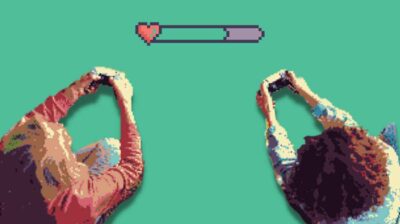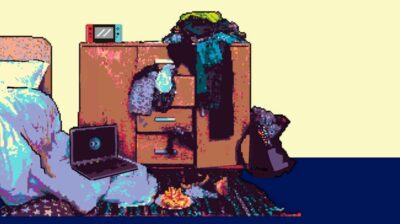What I realised through my recovery from an eating disorder
One of the first steps in Maria’s recovery journey was acknowledging her eating disorder.

TW // This article references an eating disorder. Contact the Bodywhys helpline: 01 2107906 or [email protected]
Throughout my life my eating habits have been a problem. I have struggled with what I consider eating too much and eating too little. Being obsessed with food and not caring about it at all. Despite being years into recovery, I still struggle to admit I was sick. Eating disorders can be quite competitive, even if you’re just competing with yourself. I didn’t want to tell anyone because I felt like a fraud. No matter what I did, I never felt ‘sick enough’. I had to earn being sick, there was always some form of criteria I didn’t meet, a new goal to aspire to.
The thing is, even these ‘small’ food problems develop into bigger and bigger problems. It’s a cycle that never ends and you can go months without even realising you’re in it. Food can be an addiction, one that often isn’t taken as seriously as it should be. Recovery is viewed in a superficial way by a lot of people. If you go from being considered overweight/underweight to an average weight then you have been cured.
What impacted my eating disorder
In reality, I was at my most vulnerable point when I was a ‘normal’ weight. I wanted to be frail on the outside to mirror my inner world. When that was gone, suddenly I was expected to go back to normal life as if nothing happened. I was ‘cured’ but I never felt sick in the first place. My eating problems stem from a lot of things. I used food as a coping mechanism for the lack of control in my life. Deep-rooted shame and hatred of myself. I felt like people cared about me more when I was sick.
I find it very tempting to fall back into old habits, relapse isn’t a stranger to me. Every time I get stronger, I can fight it better. I’m strong enough to look at those negative thoughts and ignore them. Every time I want to go back, I remember how painful it was to only be valued for my appearance. How painful it was to destroy my relationships. I felt like I could control something.
That illusion was quickly shattered, the world moved on around me and I was staying still. I wasn’t controlling anything, it was controlling me. Paralysed by fear, yearning for the chaos to stop rather than jumping in to embrace it. I separated my eating disorder from myself, like it was a parasite eating my life away. It is a disease, not my identity.
Accepting my eating disorder
I stopped listening to its rules, I pretended the calorie labels felt bad when I looked at them and slowly I took my life back. Being a ballet dancer made it hard to remove myself from negative comments, I had to take a break. I changed studios, I didn’t accept any negative comments about my weight and I talked to my teacher if any appeared.
Comments like ‘you look better’ hurt me. An innocent comment can be triggering and rather than expecting the world to mould to your expectations, the best thing to do is to discuss it with the person, they may not even know they’re hurting you.
If you’re on a similar journey to me, I want you to know that I believe you’re sick enough. I hope that anyone that feels like this, can come back across this article in the future and realise how much they have healed. While it is slow and putting your life back together is hard, it’s not impossible. The most important thing is that no matter how much you relapse, you wake up and try again the next day. People will still love you, no matter how you look. Acknowledging your eating disorder is the only way to defeat it, don’t allow it to eat you alive.
Feeling overwhelmed and want to talk to someone?
- Get anonymous support 24/7 with our text message support service
- Connect with a trained volunteer who will listen to you, and help you to move forward feeling better
- Whatsapp us now or free-text SPUNOUT to 50808 to begin.
- Find out more about our text message support service
If you are a customer of the 48 or An Post network or cannot get through using the ‘50808’ short code please text HELLO to 086 1800 280 (standard message rates may apply). Some smaller networks do not support short codes like ‘50808’.






